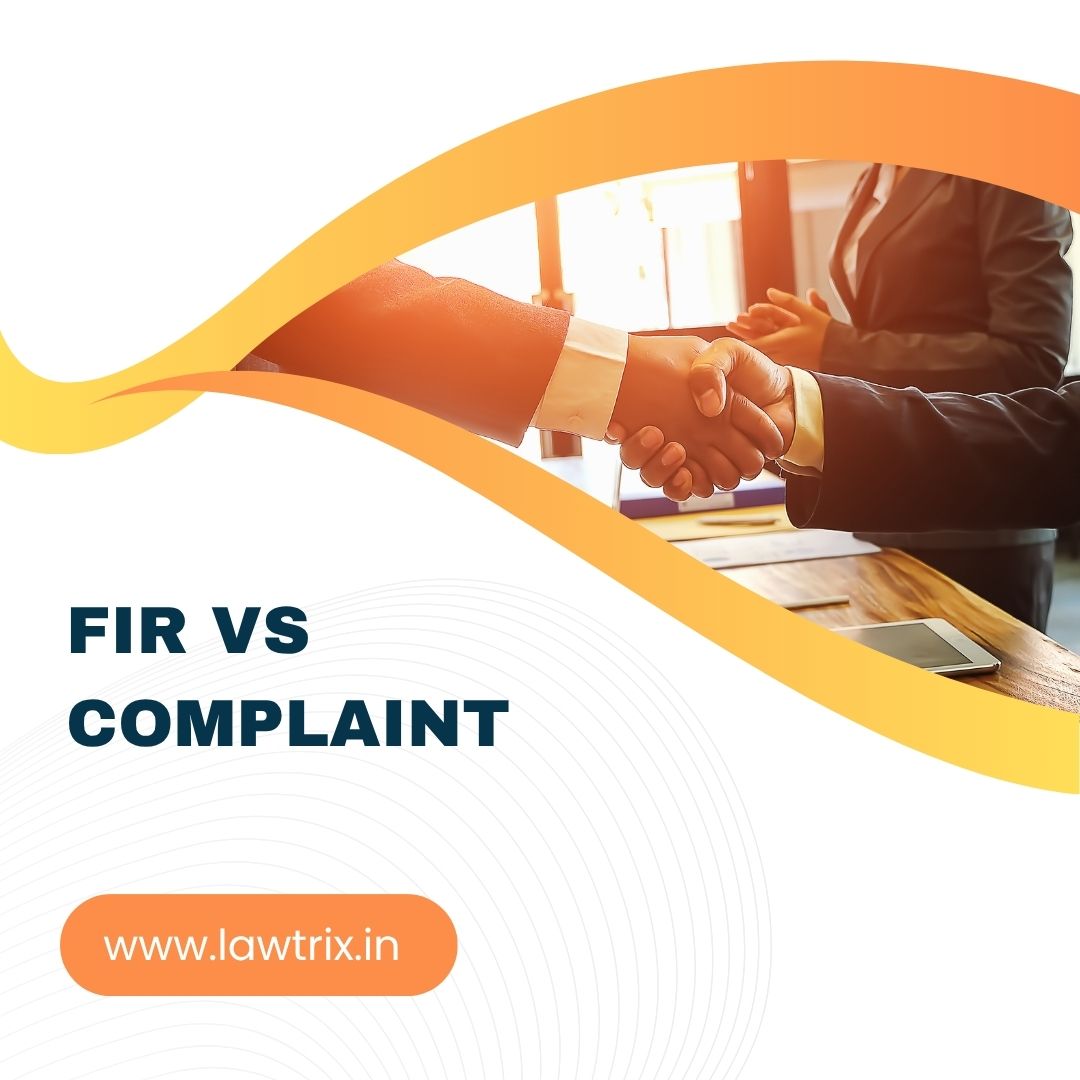


In Indian criminal law, many people often confuse an FIR (First Information Report) with a complaint. While both serve as mechanisms to initiate legal action, they differ significantly in terms of procedure, authority, and effect. This article simplifies the difference between an FIR and a complaint, with practical examples and references to key legal provisions.
FIR stands for First Information Report. It is the first step in the investigation process for cognizable offences — crimes that are more serious and require immediate police action, like murder, rape, theft, etc.
Filed with the police.
Only for cognizable offences.
Leads to immediate investigation and arrest.
Must be recorded in writing, read out, and signed by the informant.
A copy is provided free of cost.
If you witness a robbery, you can go to the nearest police station and lodge an FIR. The police are duty-bound to register it and start investigating immediately.
A complaint is defined under Section 2(h) of the BNSS. It is a formal allegation made before a Magistrate, either orally or in writing, with a request to take legal action against a person.
Filed with a Magistrate, not police.
Can be made for cognizable or non-cognizable offences.
Magistrate may direct police to investigate or conduct inquiry himself.
No automatic investigation unless directed by court.
If someone forges your signature on a property document and the police refuse to act, you can file a criminal complaint before the Magistrate, who can then direct action.
| Criteria | FIR | Complaint |
|---|---|---|
| Filed Before | Police Officer | Magistrate |
| Applicable To | Cognizable Offences | Both Cognizable & Non-Cognizable |
| Investigation Starts | Immediately after filing | Only if Magistrate directs |
| Example | Murder, Theft, Kidnapping | Forgery, Defamation, Cheating |
You can:
Approach the SP or Commissioner
File a complaint before the Magistrate
Approach the High Court under Article 226 of the Constitution or file a writ petition.
Understanding the difference between FIR and complaint can empower you to take the right legal action at the right time. While FIRs are vital for urgent police involvement in serious crimes, complaints offer a judicial pathway when the police fail to act or when the matter is less severe.